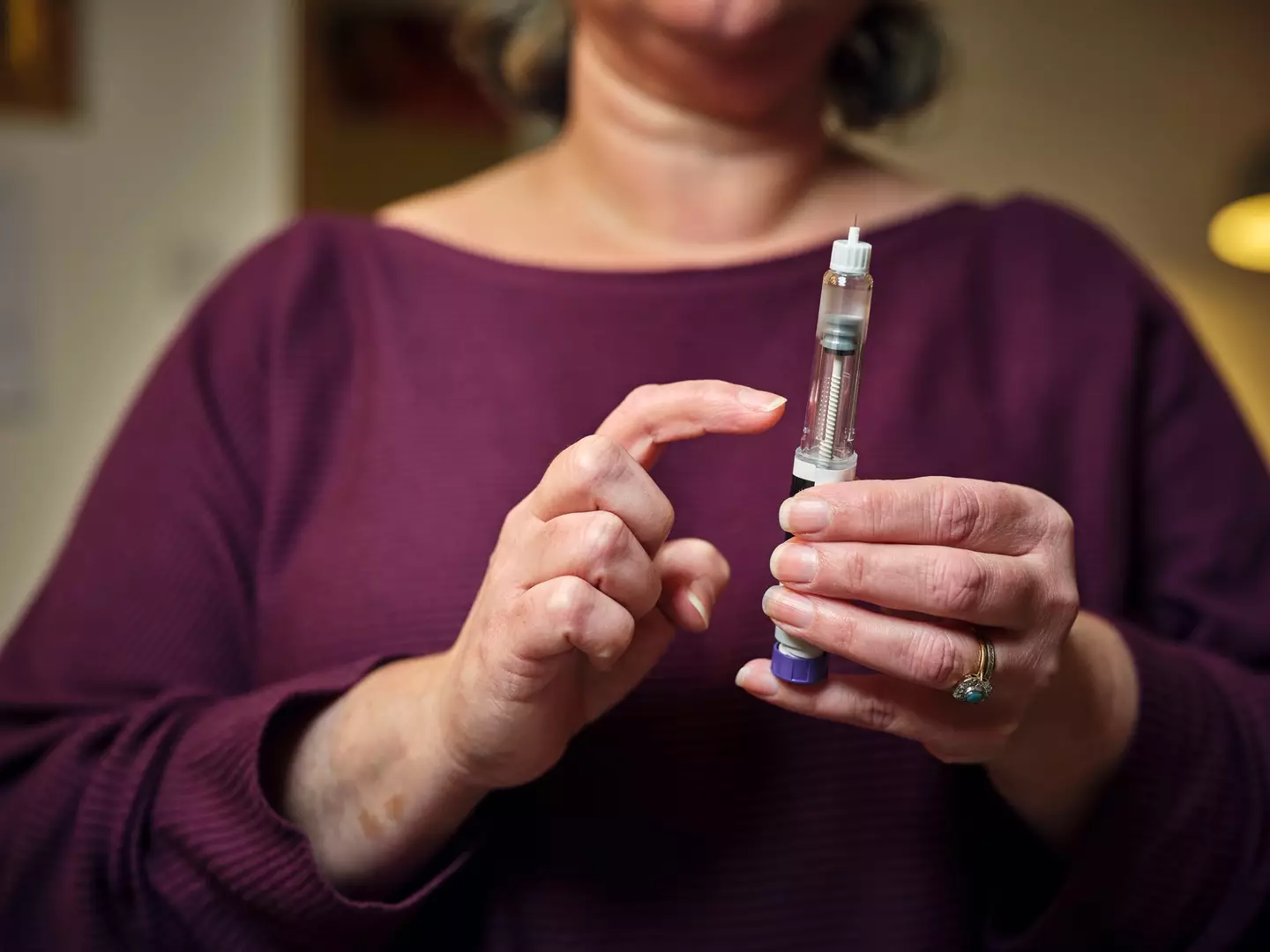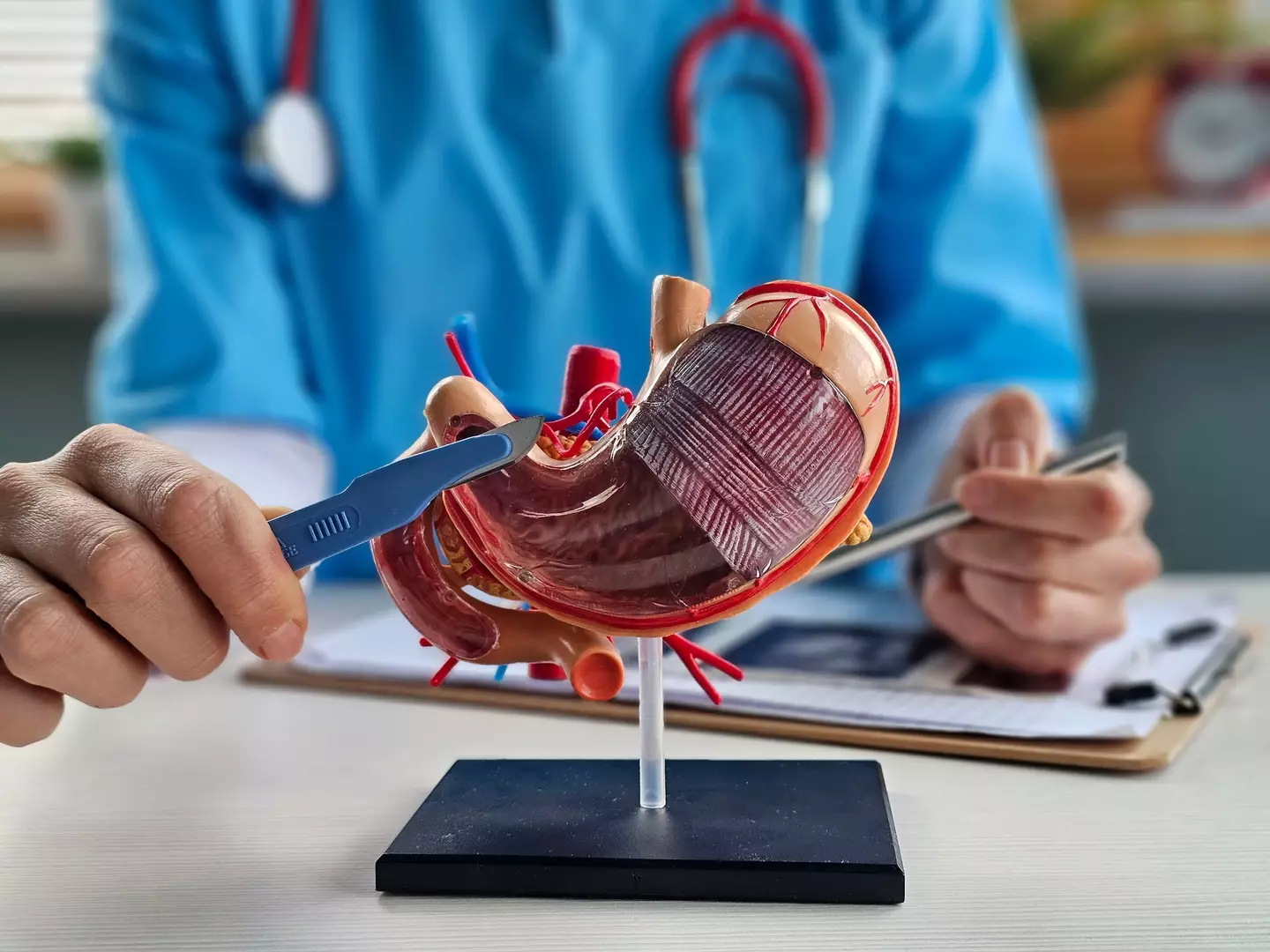
A study has revealed an alternative and more effective weight loss strategy compared to Ozempic-like drugs, but it comes with a catch.
GLP-1 medications like Ozempic, Mounjaro and Wegovy are typically prescribed to treat Type-2 diabetes, helping patients to manage their blood sugar levels.
While it isn't technically licensed as a weight loss treatment by the FDA, its active ingredient, semaglutide, works to suppress appetite and has helped hundreds of thousands of people shed more than a few stubborn pounds.
Dozens of Hollywood's famous faces are looking noticeably slimmer as a result of the medication, though GLP-1 can come with a raft of unfavourable side effects, from nausea, diarrhoea and abdominal pain to sagging skin, a change in libido and even teeth.
Advert
Now, a group of researchers have discovered there could be an alternative treatment plan that's five times more effective at losing weight compared to the jabs: and that's bariatric or metabolic surgery.
While weight loss surgery is considered a common and safe procedure, as it works to make tweaks to the digestive system, there can be some pretty nasty side effects to be mindful of before jumping under the knife.

According to the Mayo Clinic, bariatric surgery is considered only in cases where patients have tried to lose weight by improving their diet and exercise habits or who have serious health problems as a result of their weight, like high blood pressure, Type-2 diabetes, sleep apnea or nonalcoholic fatty liver disease, amongst others.
As well as being notoriously expensive, there are several short-term risks to factor in, like excessive bleeding, infection, a reaction to anaesthesia, breathing problems and/or leaks in the gastrointestinal system.
According to the NHS, blood clots can form in the lower leg (deep vein thrombosis) after surgery because of how the blood flows and clots after surgery, though it can be managed with medications.
A stomach leak may also occur in the aftermath of a gastric bypass or sleeve gastrectomy, during which food could leak out of the abdomen and pose a serious infection that requires antibiotic treatment.
At the other end of the spectrum, patients might experience a blocked gut where food can become 'stuck,' though this too can easily be mitigated by cutting food into smaller bites and drinking during meals.
Post-surgery, patients are advised that their smaller stomachs might take some getting used to as well.

Though most of these are temporary problems, the procedure also poses a lengthy list of long-term risks.
The Mayo Clinic states bowel obstruction, dumping syndrome - involving diarrhoea, lightheadedness, nausea and vomiting - gallstones, hernias, hypoglycaemia (low blood sugar), ulcers, acid reflux, malnutrition are some factors to consider - and even death, though this is fortunately rare.
Meanwhile, sudden weight loss is likely to contribute to some excess skin and rolls over the body, which might require another surgery to remove.
Despite this, NYU Langone Health and NYC Health + Hospitals found that patients who had a sleeve gastrectomy or a gastric bypass lost an average of 58 pounds after two years, compared to an average of 12 pounds for patients on GLP-1 for six months.
The study recognises that the surgical group of patients had a longer time to lose the weight, however, the scientists claim those who opt for the injections struggle to keep the momentum going, finding 70 percent give up taking GLP-1 drugs within 12 months.
Of those who do commit to a full year on the jabs, patients in the study only lost seven percent of their body weight overall, compared to 24 percent for those who went under the knife two years before.
Topics: Ozempic, Health, World News, Food and Drink, Fitness